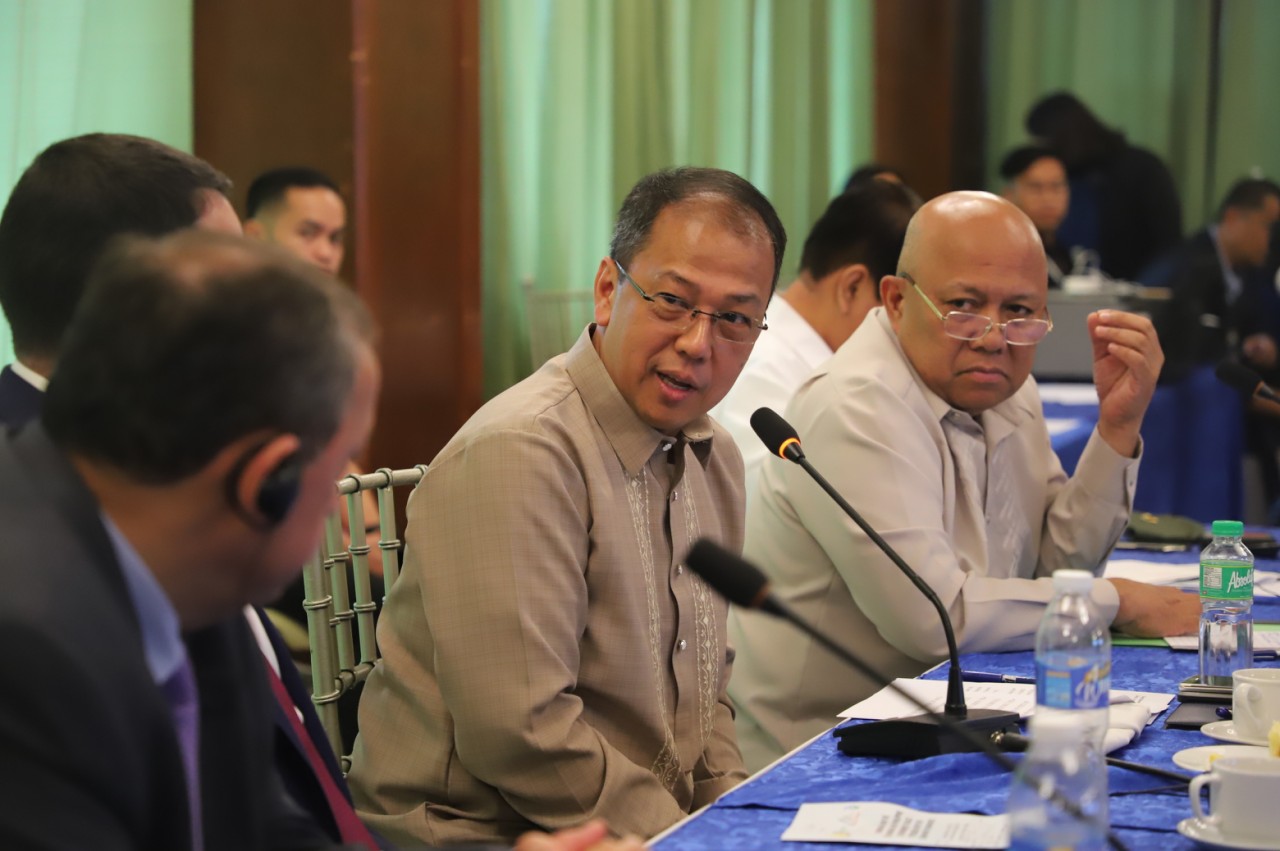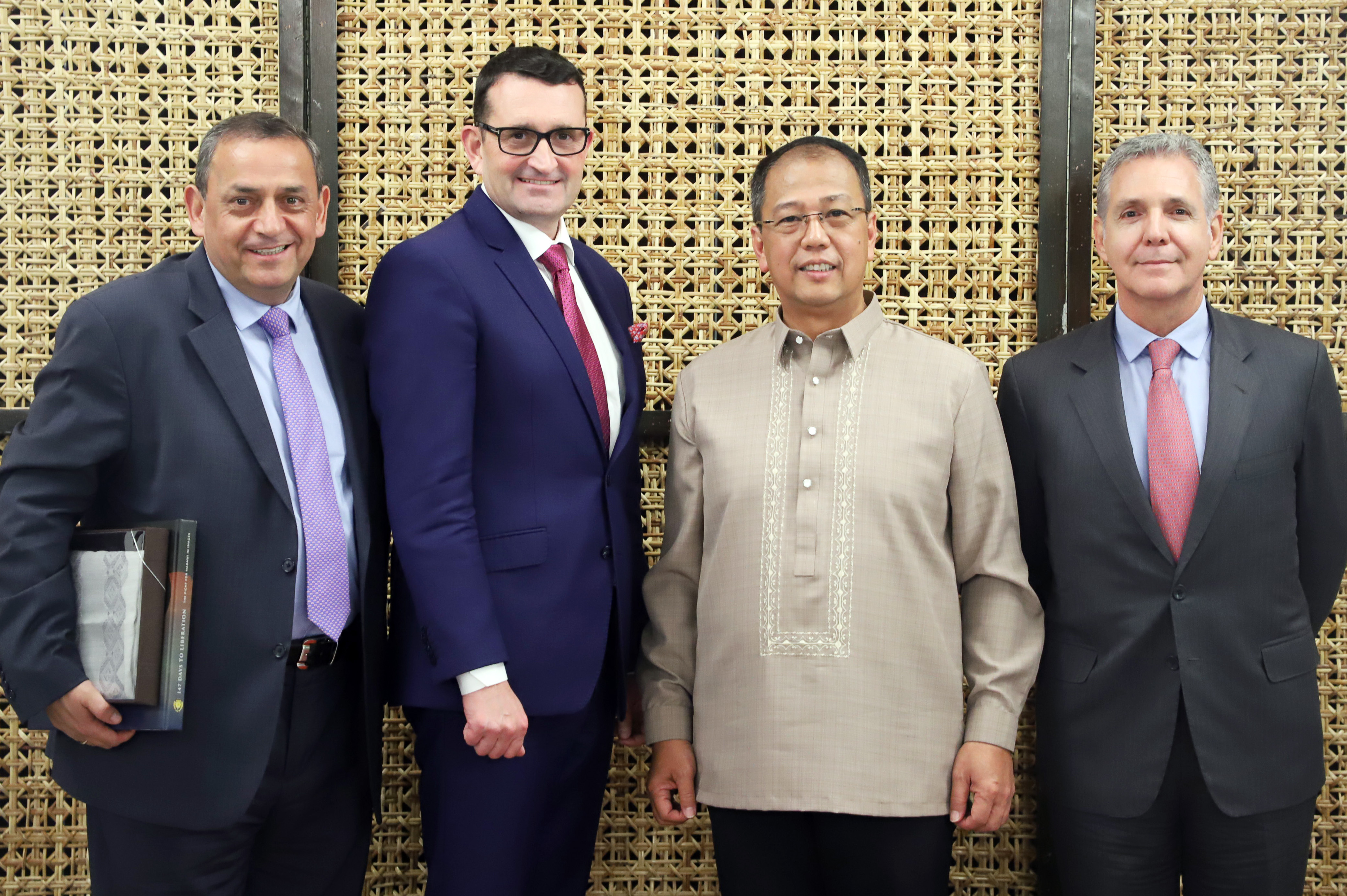QUEZON CITY, 18 May 2019 — Colombia’s success story in peace negotiations with communist insurgents was attributed to the participation of government security sector in the negotiating panel.
Major General Carlos Alfonso Rojas, a retired army officer and government representative in the peace talks with the Colombian Communist Party, stressed the indispensability of the military in the negotiations.
“It is important for the military to be sitting on the negotiating table so we can understand what is exactly unfolding in the process and to negotiate specifically on military concerns such as decommissioning of combatants and ceasefire,” Rojas said in his talk during the “Seminar on the Colombian and Philippine Governments’ Peace Processes with the Communist Insurgents” in Quezon City.
The seminar is a joint project of the Norwegian Center for Conflict Resolution, Government of Colombia, Office of the Presidential Adviser on the Peace Process, Armed Forces of the Philippines and Balay Mindanaw. It is in line with the bilateral engagement between the Colombian and Philippine governments to strengthen their commitment in taking the peaceful path in addressing the insurgency problem.
In November 2016, the The Revolutionary Armed Forces of Colombia, also known as Fuerza Armadas Revolucionarias de Colombia (FARC) and the Colombian Government signed a final peace accord that ended 50 years of insurgency. The peace process taught the parties how to narrow down their agenda and focus on the key aspects of the agreement.
Earlier proposals to include economic, justice, legislative, and security reforms shifted to a greater emphasis on rural development and strengthening guarantees on political participation.
The Six-Point Negotiating Agenda became on offshoot of this process. The Agenda addressed concerns on comprehensive rural reform, political participation, problem of illicit drugs, victims reparation, end of conflict, and implementation.
Ending armed conflict
The conclusion of the negotiations would not be possible if not for the will and commitment of both parties to end the armed struggle.
While the Military Forces of Colombia initiated reforms within their organization, FARC on the other hand, also showed their sincerity in continuing the peace negotiation.
“I think that from the military perspective, FARC proved and showed their sincerity to the peace process,” Rojas said.
He shared that Colombia suffered from 32,000 kidnap-for-ransom cases for a decade before its decline in 2002, when FARC unilaterally decided to stop such operations.
In addition, FARC also declared a unilateral ceasefire that boosted the confidence of the people because it showed genuine intention in pursuing the path to peace. These actions contributed to the confidence building between the parties.
For his part, Alberto Lara, Director of SDG-Social Development Group, also a retired military officer and advisor to the Colombian Senate’s Human Rights and Peace Commission, stressed in the same event that governments should also have a strong political will when negotiating with insurgents.
“The Colombian government needs to have that political will of wanting to negotiate peace, not only wanting to explore options but to really sit down on the table and resolve the conflict,” he said.
Lessons from negotiations to implementation
Lara said that another major lesson for the negotiating parties was the need to put the welfare of the victims at the center of the negotiations.
“You should always take into account the victims. To be able to compensate the victims that allows for reparation,” he said.
Meanwhile, Rojas acknowledged that their local government units should have been equally on board in the negotiating table with FARC.
“In many cases in Colombia, we are debating if the regional leaders can have the power to initiate dialogues with the local rebels. They have a certain mandate and duties in protecting their constituents and they were not considered because our Constitution only allows specific people to negotiate with the rebels,” he said.
Rojas also noted the importance of having a definite time frame.
“We have to have a timeframe. It is not an eternal process. We need to keep those deadlines and that it has to be clear,” he said.
True to their commitment—and with the efficient implementation of the Colombian security sector—the FARC’s complete decommissioning was done within 180 days.
Local learnings
In his closing remarks during the Seminar, Presidential Peace Adviser Carlito G. Galvez, Jr. concurred the lessons imparted by the Colombians, particularly the involvement of the security sector and the local government units in peace engagements.

“With the invaluable inputs coming from the security sector, particularly those who have extensive experience on the field, the chances of arriving at a peaceful resolution to armed conflicts significantly increases,” Galvez said.
According to Galvez, the Philippine Government’s “Whole-of-Nation Approach” under Executive Order No. 70 aims to address the root causes of the communist insurgency and armed conflict across the country.
He explained that under this strategy, local peace engagements will be led by local government units and members of the community who can help facilitate the discussions and provide recommendations on how to resolve the decades-long insurgency.
Third-party facilitators
Galvez also thanked the Norwegian government for its continuous support to the Philippine peace process.
“The Norwegian Government has for many years been helping to resolve the decades-long armed conflict between the Philippine government and armed rebels,” he said.
Norway is a member of the International Monitoring Team overseeing the implementation of the ceasefire agreement between the Government of the Philippines and the Moro Islamic Liberation Front (MILF).
The Norwegian Government is also part of the Independent Decommissioning Body (IDB) that is implementing the decommissioning process of MILF combatants and their weapons.
On the other hand, Malaysia also served as a third-party facilitator during the peace negotiations between the Philippine Government and the MILF. The talks eventually led to the passage of the Bangsamoro Organic Law and the creation of the Bangsamoro Autonomous Region in Muslim Mindanao.
Participated in by representatives from the Military Forces of Colombia, Armed Forces of the Philippines and the Philippine National Police, the activity provided the Colombian and Philippine delegates the opportunity to exchange knowledge and experiences in dealing with communist insurgents in their respective countries.
Earlier, the Colombian delegation also visited the National Defense College of the Philippines and the Command and General Staff College as part of a series of activities for this learning program. ###












